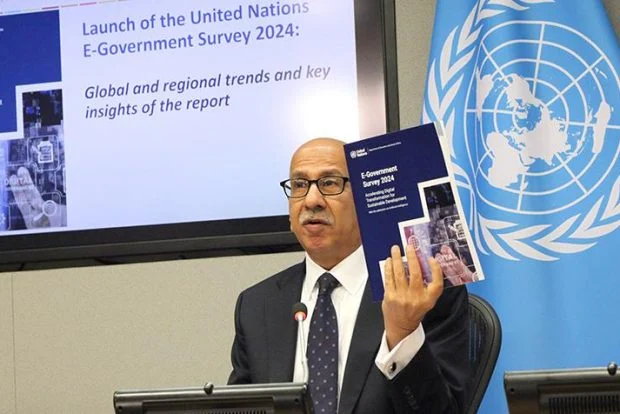Ethiopia was ranked 24th from the bottom out of 193 countries by a United Nations E-government development report released last week.
While the country climbed 10 positions from its previous rank of 179 in the 13th edition of the report, it remains categorized in the lower-middle tier with a minimum first-level rating.
The E-government survey report also highlights interesting differences between different regions, with most European countries grouped very high in the E-Government Development Index. In contrast, African countries remain around the bottom. With most low-income countries having underdeveloped metrics to evaluate the success of their digital government efforts, impact assessment remains limited.
A close relationship between sustainable development goals (SDGs) and digital development is underlined in the report, with a focus on promoting just, peaceful, and inclusive societies and building effective, inclusive, and accountable institutions. Around 11 principles of effective governance, which include transparency, competence, and independent oversight, are used to assess institution building.
While Prime Minister Abiy Ahmed (PhD) has championed digitization across multiple public sector services, the success of the initiatives has been limited due to low digital literacy, infrastructure, and the legal framework. During his final address to parliament last year, he made sure to note the need to prepare for the massive technological changes that will sweep across sectors in the coming few years.
“AI is coming, and we should be prepared,” Abiy underscored.
An addendum on AI has also been added to this year’s report as it presents potentially seismic implications for governance.
As part of a goal to set up a foundational digital governance framework, the Ministry of Innovation & Technology unveiled a five-year, 40-million-dollar e-governance plan two months ago with funding from the European Union. It underscores functionality, capacity, and finance as pillars for addressing challenges in data management, governance, and enterprise architecture in public services.
Nevertheless, the deployment of electronic procurement systems across 170 federal government offices through e-GP, the full automation of business license issuances, and the expansion of digital payment systems for utility bills have undergone significant growth reflective of a global trend.
The global average value of EGDI, as a proxy for measuring the digital divide, reflects substantial improvement over the past two years, with the proportion of the world population lagging in digital government development decreasing from 45.0 percent in 2022 to 22.4 percent in 2024.







